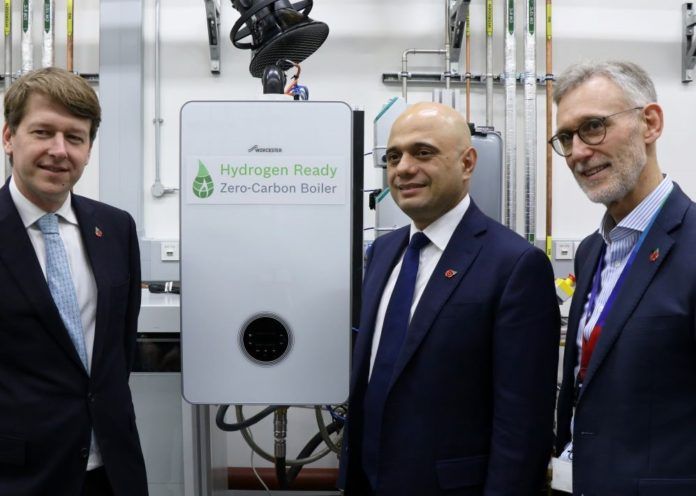
Martyn Bridges from Worcester Bosch discusses the immediate impact that Net Zero will have on the heating industry.
The heating industry is in the midst of its biggest challenge arguably since it started. This change is something that is going to affect our industry for the next 20 or 30 years at least. The new Net Zero by 2050 targets set by the government mean that installers must prepare to adapt to meet new regulations that will come into play as these will directly impact their work.
There have been attempts in previous years to take strides towards decarbonising our heating and hot water systems, from government incentives for renewable heat, to the green deal and even feed-in tariffs. However, none of these have made a significant impact. Now that we have a legally binding deadline, I imagine that much larger strides will begin, and the ripple will be felt across the industry. Whilst 2050 may sound far away, I am certain that we will begin to feel the impact of our transition towards a Net Zero future immediately. We could see drastic changes in the way that newbuilds are constructed as soon as next year.
As I write this, Part L of the Building Regulations is out for consultation. Admittedly, this consultation is only for new build properties, but straight away there are two viable options on the table. Whilst this doesn’t come into effect until 2020, I think that some new homes will, quite rightly, be futureproofed in insulation, ventilation and the heating system design to allow any heat source to be used. Buildings will be designed for energy efficiency from the start, instead of designing an asset and then retrospectively installing renewable and low carbon technology some time down the line. A new build property is in the best position to achieve that as you’re starting from a blank canvas, so you can build homes to meet these standards. It is more expensive of course, but it’s no-where near the expense and disruption that an existing home would have to go through.
Legislation for newbuilds is a great starting point, but to really get to the heart and soul of carbon reductions, we’ve got to start hitting existing properties. When it comes to significantly decarbonising existing homes, there are several potential options. However, there is a strong indication that gas will remain since it would be such a major disruption to try and eliminate it altogether. It may have an element of biogas injected in, or hydrogen, as these are both carbon-free at the point of use. In my opinion, the best way to reach these challenging 2050 targets is to transition to 100% hydrogen gas. However, the infrastructure requirements for this would probably mean that this couldn’t be put into effect until the mid-2030s, if not later. So, between now and then, we must show some alternative carbon reduction methods.
It’s clear that we all want to unlock the answers on how to reach Net Zero, but I believe that the government hold the keys. A technology roadmap will be published next year by the Department for Business, Energy & Industrial Strategy (BEIS) that will show the government’s favoured technology to help us reach our targets. I expect this roadmap to simply outline which tech the government favour. This list is likely to include both heat pumps and boilers and I personally wouldn’t be shocked if at some time in the 2020s, they mandate that ‘hydrogen ready’ boilers must be fitted into existing homes. These will be boilers much like the one we’re designing which will run on natural gas quite happily, but when the day comes that hydrogen is in play, a simple conversion makes it capable of being run on hydrogen.
When we look at the current market, I believe that BEIS will press for hybrid heat pump systems. The Climate Change Committee (CCC) are extremely influential in these policy making decisions and have advocated for hybrid heating systems. These systems are essentially a gas or oil boiler, supported by heat pump. In my opinion, this is a strong option as these would work with both a hydrogen boiler and a natural gas boiler meaning that if – and hopefully when – we make the transition to hydrogen boilers, these hybrid systems will be compatible and help for a smooth transition.
If this is to happen, there needs to be a significant amount of training for installers to learn how to fit low carbon technologies such as heat pumps. These skills aren’t common in the UK, as only 20,000 heat pumps are installed annually. The take-up of heat pumps so far is very low, they are more expensive than boilers and installers may not be that aware or confident on their specification and installation. Current boiler installers need to be upskilled if the government wishes to transition to heat pumps. They must help in funding training courses and I hope they do it sooner rather than later.
